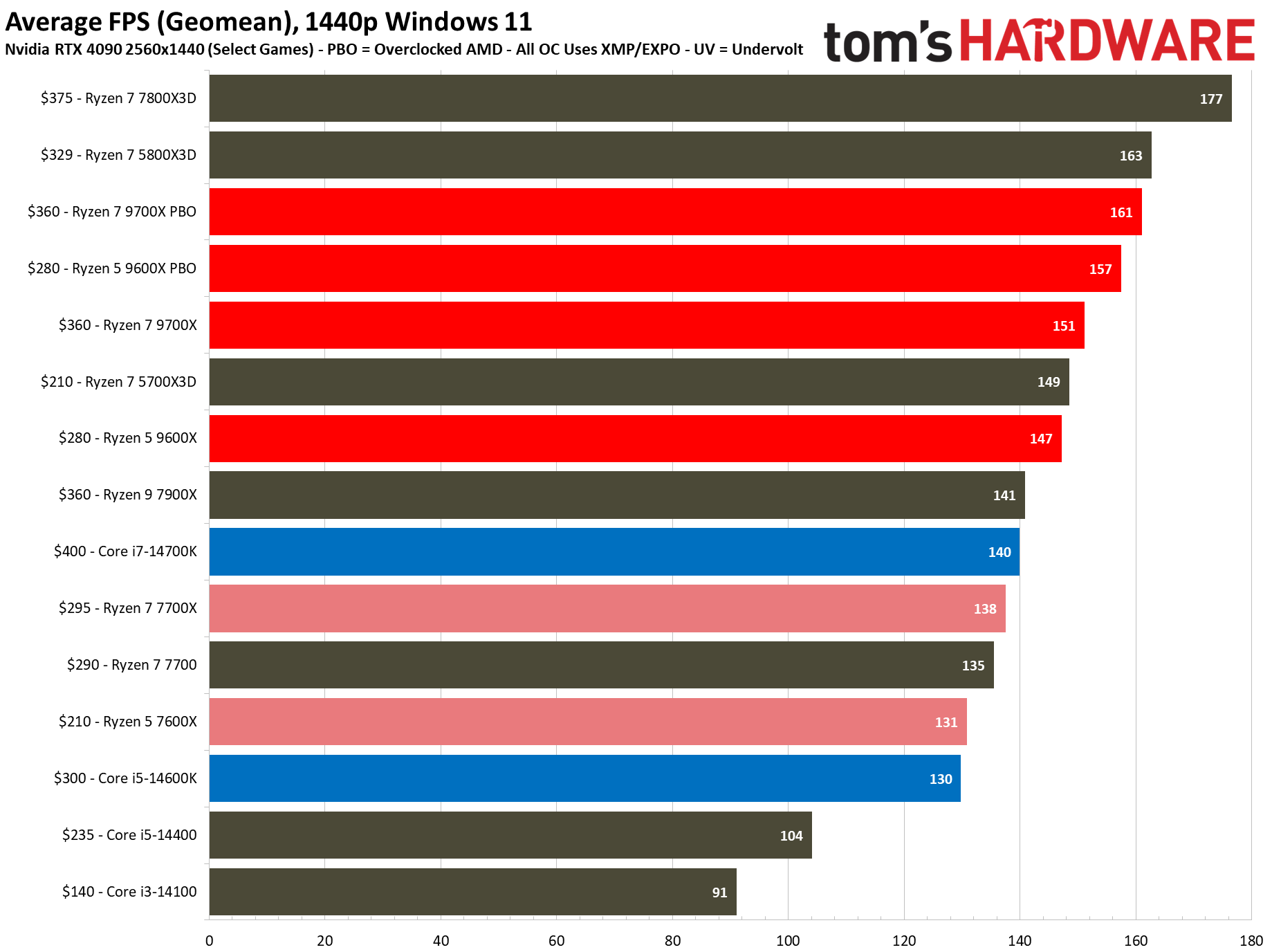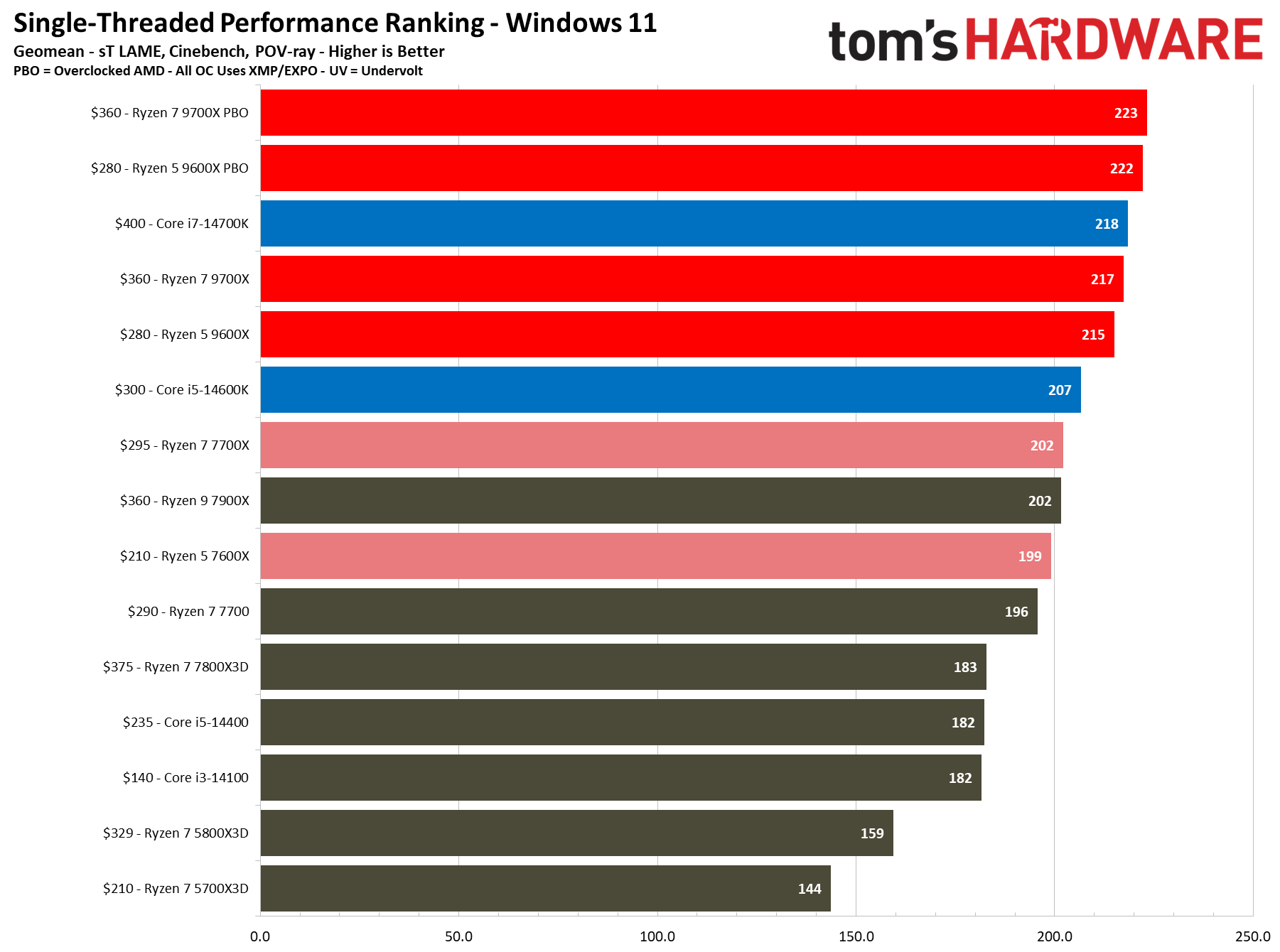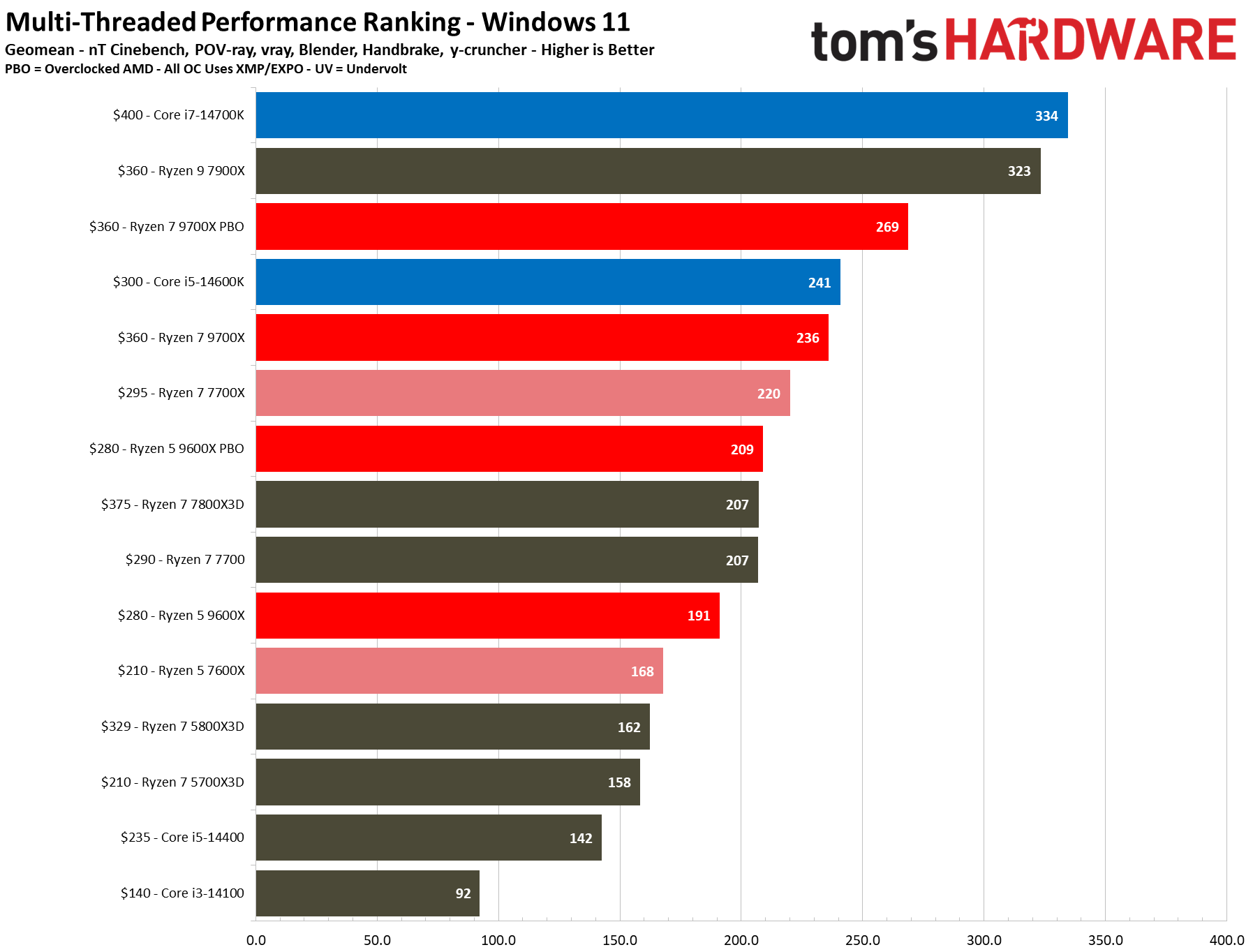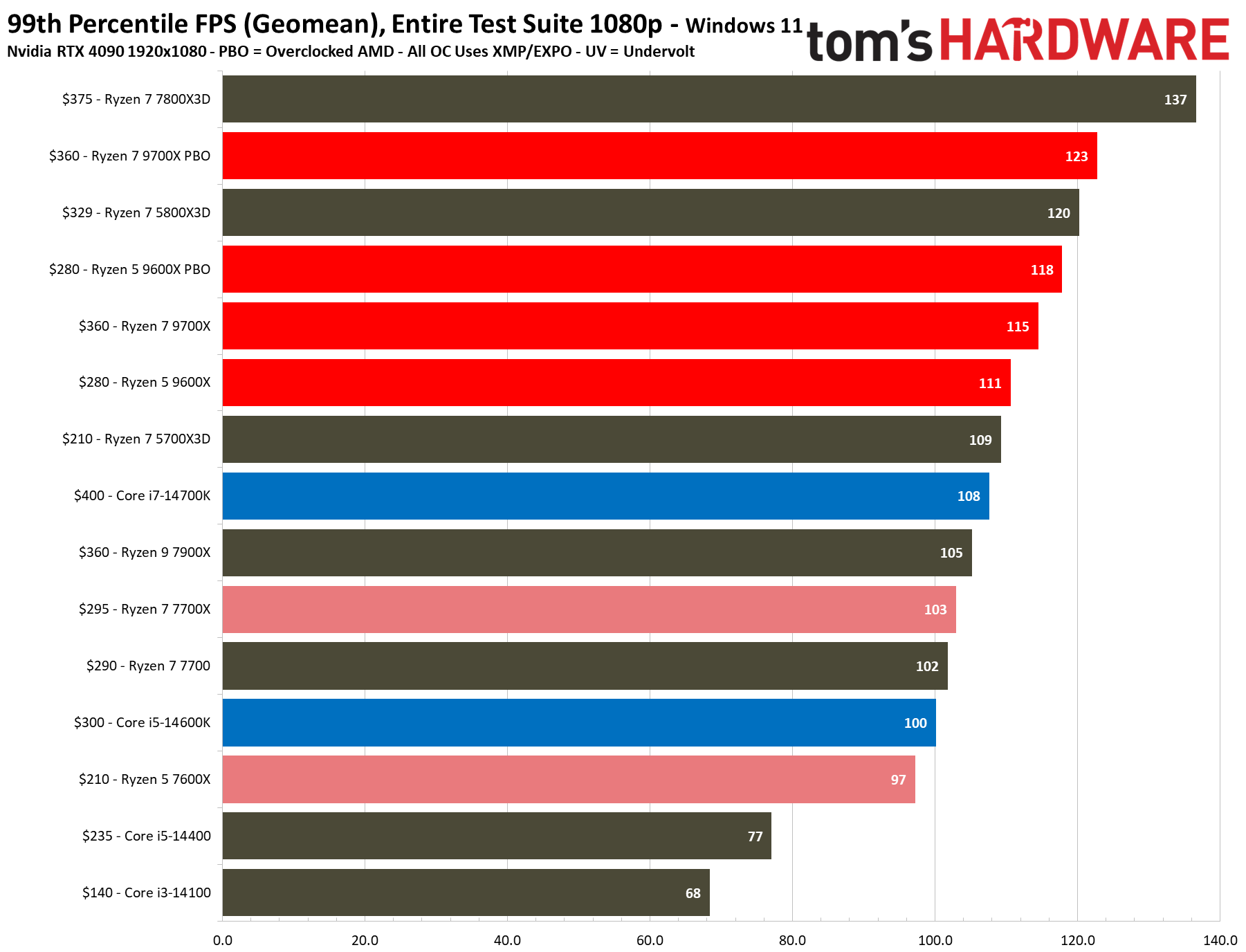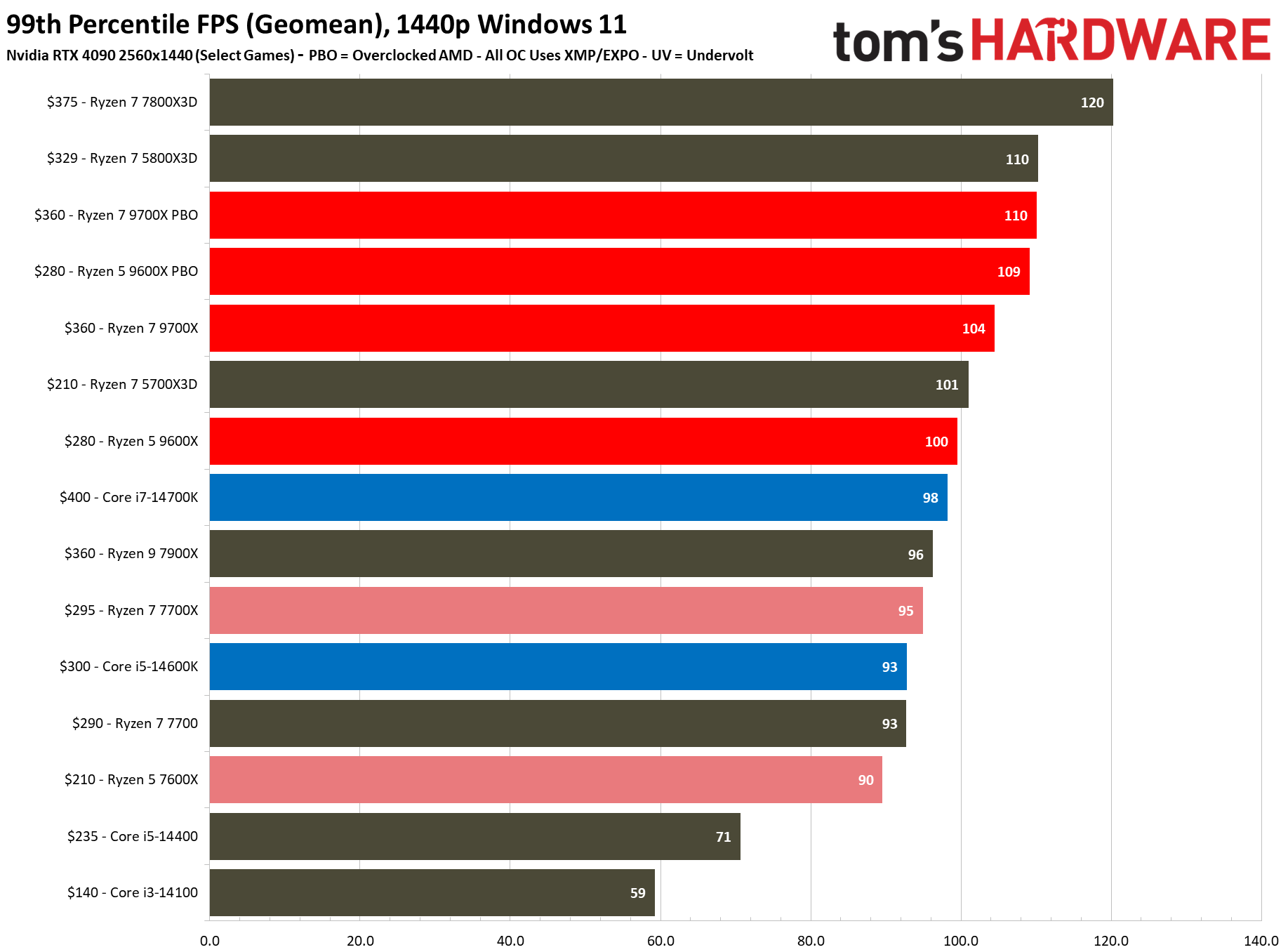Why you can trust Tom’s HardwareOur expert reviewers spend hours testing and comparing products and services so you can choose the best for you.Find out more about how we test.
The Opening Salvo
The $280 Ryzen 5 9600X sets a new bar in the value segment, earning 4.5 stars in our ranking. Its solid gaming and single-threaded performance, coupled with exceptional power efficiency and a reasonable price point, earns it a spot on our list of theBest CPUs for gaming. Intel’s competing Core i7-14600K still holds an advantage in heavily threaded workloads, but AMD has a commanding lead in gaming that helps offset that advantage. Additionally, the Ryzen 5 9600X’s stellar power consumption metrics will ultimately yield a quieter system that has more forgiving cooling and power requirements.The Ryzen 7 9700X also beats the competing Intel processors in gaming and single-threaded work, and while its $360 price tag is $40 lower than the launch price of its predecessor, pricing pressure from AMD’s $375 Ryzen 7800X3D becomes more of an acute concern. We’ve assigned this chip a 3.5-star ranking (we’ll have a full separate review in the coming days).Below, we have the geometric mean of our gaming test suite at 1080p and 1440p and a cumulative measure of performance in single- and multi-threaded applications. We conducted our gaming tests with an Nvidia RTX 4090, so performance deltas will shrink with lesser cards and higher resolution and fidelity settings.
At stock settings, the $280 Ryzen 5 9600X delivers strong gaming performance at its price point, but the $300 Core i5-14600K is 4% faster in 1080p gaming. Simple, no-fuss EXPO memory and CPU overclocking yield another 8% of 1080p gaming performance for the 9600X, making the Ryzen 5 9600X a convincing value processor for gaming enthusiasts.The Ryzen 7 5800X3D weighs into the 9600X gaming conversation with exceptional performance for its $210 price tag and support for the economical AM4 platform. However, due to its aging Zen 3 architecture, you’ll pay a stiff performance penalty in productivity apps. In contrast, the Ryzen 5 9600X has a more balanced performance profile with class-leading single-threaded performance and much more threaded heft than the 5800X3D.Intel’s Core i5-14600K lags behind the 9600X in single-threaded work, but it’s an impressive 26% faster than the 9600X in heavily-threaded applications. That could make the chip compelling if you prize performance in productivity apps, but Intel’s as-yet unresolved stability issues should give one pause — it’s best to ensure that the situation is fully resolved before pulling the trigger.The $360 Ryzen 7 9700X is 8% slower than the $400 Core i7-14700K in 1080p gaming and delivers 12% higher performance than the $295 prior-gen Ryzen 7 7700X, and simple overclocking yielded a further 8% of performance in our gaming benchmarks. Much like the 9600X, the 9700X excels in single-threaded performance but lags in multi-threaded work — the 14700K is 41% faster in those types of productivity applications. The 14700K’s larger lead in threaded apps is more of a concern in this price band, so the Ryzen 7 9700X’s primary advantage is gaming (aside from its drastically lower power threshold).However, the $375 Ryzen 7 7800X3D is currently the fastest gaming chip money can buy, and it’s only $15 more than the 9700X yet delivers 17% more gaming performance in our cumulative measure. The 7800X3D also has the Zen 4 architecture, so the performance penalties in application performance aren’t as severe. As such, we think the 9700X could stand for a further price reduction.Intel’s platform still supports less-expensive DDR4 memory, but the excessive pricing premiums we’ve seen in the past for DDR5 memory have largely moderated. AMD’s AM5 motherboard ecosystem has also seen improvements on the pricing front, so aside from those with oppressive budget constraints, it’s a good time to move to the more modern platform.Intel has drastically increased its power consumption over the last several generations as it seeks to retain its performance crown, but the resulting voltage-driven instability issues have generated plenty of unhappy customers. AMD is taking a completely divergent path with Ryzen 9000, dialing power consumption down by up to 40% while delivering tangible gen-on-gen performance gains that keep it on top in key criteria.The $360 Ryzen 7 9700X offers solid performance and incredible power efficiency, but pricing pressure from AMD’s own Ryzen 7 7800X3D leaves it in need of a price cut. If AMD’s pricing history at retail is any indicator, we’ll certainly see that play out in due time.The $280 Ryzen 5 9600X sets the new bar for mid-range gaming systems built around standard processors. Its solid gaming performance and single-threaded performance, coupled with exceptional power efficiency and a reasonable price point, make it the go-to chip for the value segment.
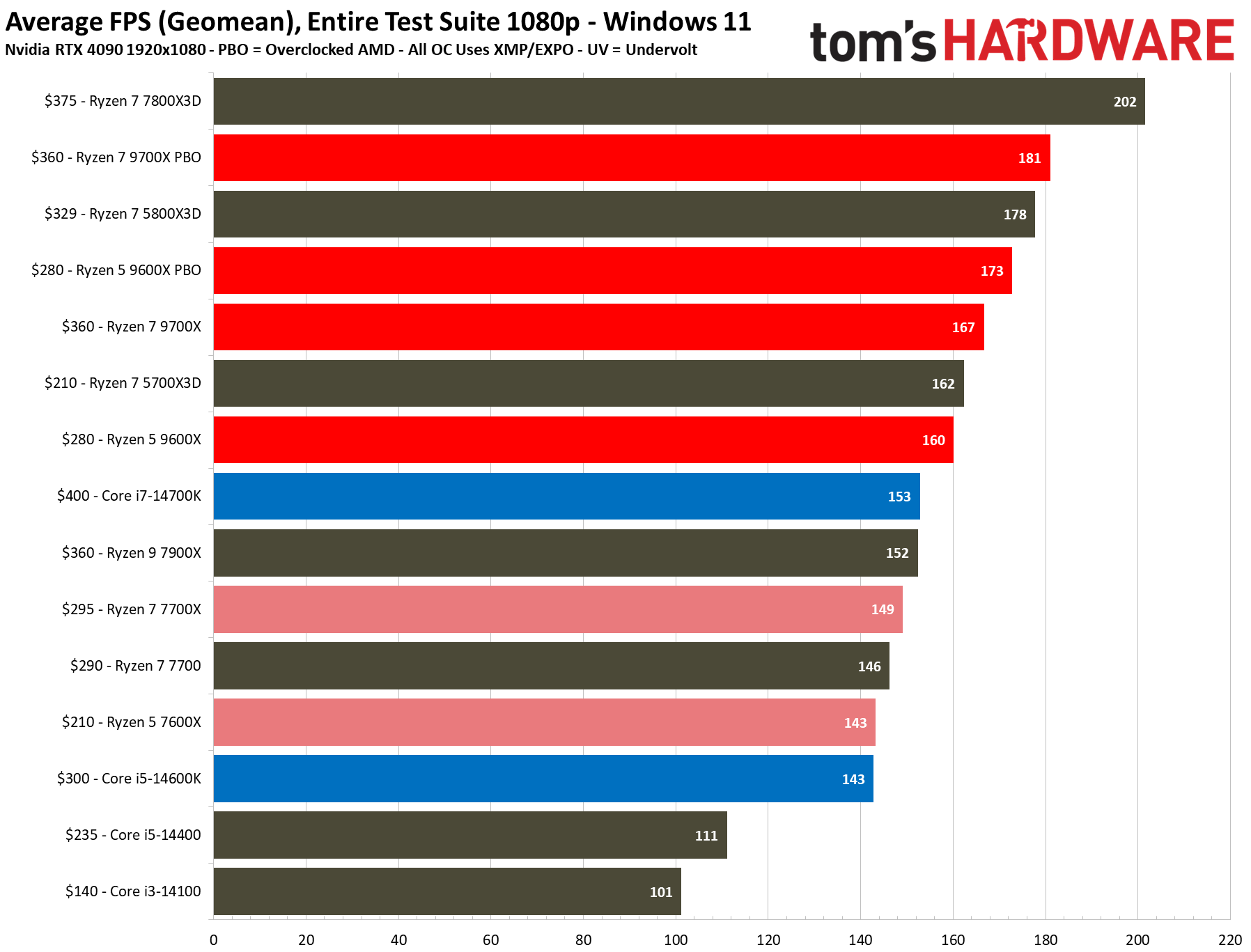
Current page:The Opening Salvo
Paul Alcorn is the Editor-in-Chief for Tom’s Hardware US. He also writes news and reviews on CPUs, storage, and enterprise hardware.
